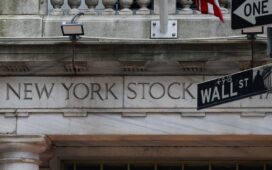People in my industry were ecstatic to see the film Trading Places, hopeful it would help the public understand what we did. But instead, the film took things in a whole different direction, and it was all because of orange juice.
getty
When I started my job as a commodities trader at Heinold Commodities in 1983, I was still young, and the bloom was a little bit off the rose.
I wanted to spend most of my time researching and analyzing various commodities, but I found I spent more time doing sales. While it wasn’t perfect, I was still happy to officially be in the industry.
So, while I wasn’t going to let myself become a cliche salesman, that did mean I had to get more clients and deliver them solid returns. As long as I did that, I’d be OK—and I was until that summer. That’s when Eddie Murphy and Dan Ackroyd changed everything.
Playing the Game
While I didn’t want to be a telemarketer, I did have to play the game. I worked hard trying to build up my research and analytics skills, while also meeting client acquisition requirements through my own methodologies.
Then the summer came, and with it, a movie called Trading Places starring Eddie Murphy and Dan Ackroyd. In it, Ackroyd plays a commodities broker who is doing quite well for himself, while Eddie Murphy is a street hustler. A bet between two different rich men causes Murphy and Ackroyd to change places, making Murphy the commodities broker and Ackroyd the hustler.
Since commodities were a key part of the film, people in my industry were ecstatic to see it. Maybe now the public would understand what exactly we did. But instead, the film took things in a whole different direction, and it was all because of orange juice.
Orange You Glad You Held?
In the movie, some evil speculators want to corner the market on frozen concentrated orange juice (FCOJ) by creating a fake version of the USDA crop report. Whether or not this had anything to do with the next part is pure speculation, but to me at the time, it certainly looked real.
Over the next few months, FCOJ futures shot up, and as a result, it was arguably a good idea to short them. We had all seen the movie, of course, which made everyone an expert on orange juice. Next thing I knew, almost the entire firm was shorting FCOJ.
Normally, I would spend some time researching the topic, but at this particular moment, there wasn’t time. I needed to either get in on the hype or cut bait, and in the end, I caved to peer pressure. I took a small, short position for my clients.
I hoped it would work out fine.
It Didn’t Work Out Fine
Christmas day, 1983. Florida, the Sunshine State, which produced (at the time) 60 percent of the US orange juice, had its worst frost in 100 years.
FCOJ went to a term called “limit up,” which is when a commodity price changes the maximum amount allowed in one day before the trading is stopped by the exchange. It did this every day for a solid window of time. It wasn’t great.
I wasn’t in as deep as some of my colleagues, as they had bet the farm. I only bet a shed on that farm, so my clients only took a small loss. But in the end, I shouldn’t have lost them anything. I only shorted FCOJ because everyone else was doing it, and had I not hedged, my clients—and me—would have been up a creek.
This could have been much worse, and all thanks to a movie. Fortunately, that was now ancient history, which was also now on my mind a bit more.
If I wanted to know what my future looked like, maybe I should take some time to look at my past. And that’s exactly what I did.





